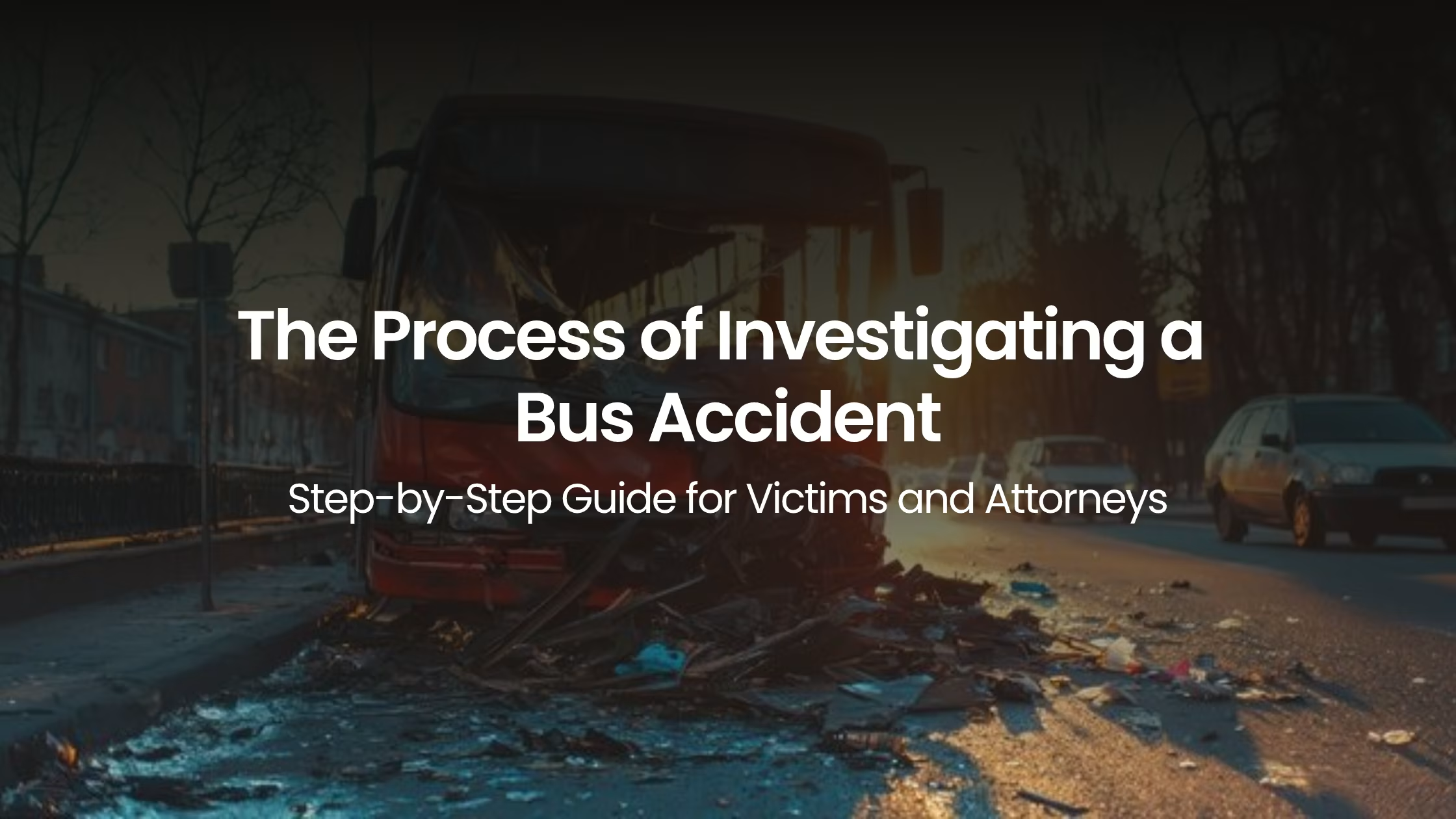A bus accident can cause devastating injuries, significant financial losses, and life-changing consequences for victims and their families. Unlike standard car crashes, these cases often involve complex liability issues, multiple parties, and specific federal and state regulations. As a specialized personal injury attorney in California, I’ve seen firsthand how a well-conducted investigation can mean the difference between winning and losing a bus accident case.
This guide walks victims, their families, and attorneys through the full investigation process supported by real case examples, legal precedents, and practical insights from the perspective of bus accident law firms.
Step 1: Immediate Response & Scene Preservation
1.1 Ensure Safety & Medical Care
The first priority after any bus accident is ensuring all injured parties receive prompt medical attention. Emergency responders should secure the scene to prevent further harm.
1.2 Document the Scene
Evidence is often lost within hours. Attorneys and investigators work to:
- Photograph all vehicles, road conditions, and visible damages.
- Capture skid marks, debris patterns, and weather conditions.
- Record witness statements while memories are fresh.
Note: In major bus crashes, obtaining surveillance footage from nearby businesses or transit cameras can be crucial. Many systems overwrite data in as little as 72 hours.
Step 2: Identifying Liable Parties
Bus accidents often involve multiple potentially responsible entities, such as:
- The bus driver
- The operating company
- Government transit agencies
- Maintenance contractors
- Parts manufacturers
Liability is determined through a combination of driver records, maintenance logs, company safety policies, and applicable bus accident case law.
Step 3: Gathering and Securing Evidence
Step 4: Legal Framework & Case Law
Strong cases rely on understanding relevant bus accident case law.
One high-profile example is Anderson v. LA County MTA (2016), where a Los Angeles jury awarded over $10 million after proving the bus driver’s negligence and the transit authority’s failure to follow safety procedures. The case underscored the importance of:
- Reviewing training protocols
- Cross-checking safety policy compliance
- Leveraging accident reconstruction experts
Step 5: Working with Experts
In complex bus accident cases, attorneys often collaborate with:
- Accident reconstruction specialists to recreate events.
- Medical experts to link injuries to the crash.
- Economists to calculate future losses.
This multidisciplinary approach ensures every angle of liability and damages is thoroughly explored.
Step 6: Determining Settlement Value
The average settlement for bus accident cases varies widely, depending on:
- Severity of injuries
- Extent of liability
- Jurisdiction
- Insurance policy limits
Step 7: Filing the Claim & Negotiations
Most cases are resolved through negotiations with insurance companies before trial. However, when settlement offers are insufficient, filing a lawsuit may be necessary to secure fair compensation.
Example:
In Smith v. Greyhound Lines (2014), a Nevada jury awarded $18 million after finding the driver fatigued and the company negligent in enforcing rest breaks. The verdict far exceeded initial settlement offers.
Step 8: Litigation Strategy
When negotiations fail:
- Attorneys file a formal complaint.
- Discovery begins with exchanging evidence and depositions.
- Pre-trial motions may narrow issues.
- Trial proceeds if no settlement is reached.
Step 9: Professional Insight from a PI Attorney
From my experience, the most successful bus accident law firms:
- Act quickly to preserve critical evidence.
- Treat every bus accident case as unique, no cookie-cutter approach.
- Use expert testimony strategically to build jury trust.
- Keep victims informed at every stage, empowering them to make informed decisions.
Final Thoughts
A bus accident investigation is a detailed, technical process requiring legal expertise, investigative skill, and a commitment to client advocacy. Whether you are a victim or an attorney preparing for a bus accident case, following a methodical approach significantly increases the chances of a favorable outcome.
If you or someone you know has been injured in a bus accident, time is critical. The sooner you begin your investigation, the stronger your case will be. At Ladva Law Firm, we have the resources, experience, and track record to handle even the most complex bus accident settlements.
Contact us today for a free consultation and let our team fight for the justice and compensation you deserve.






